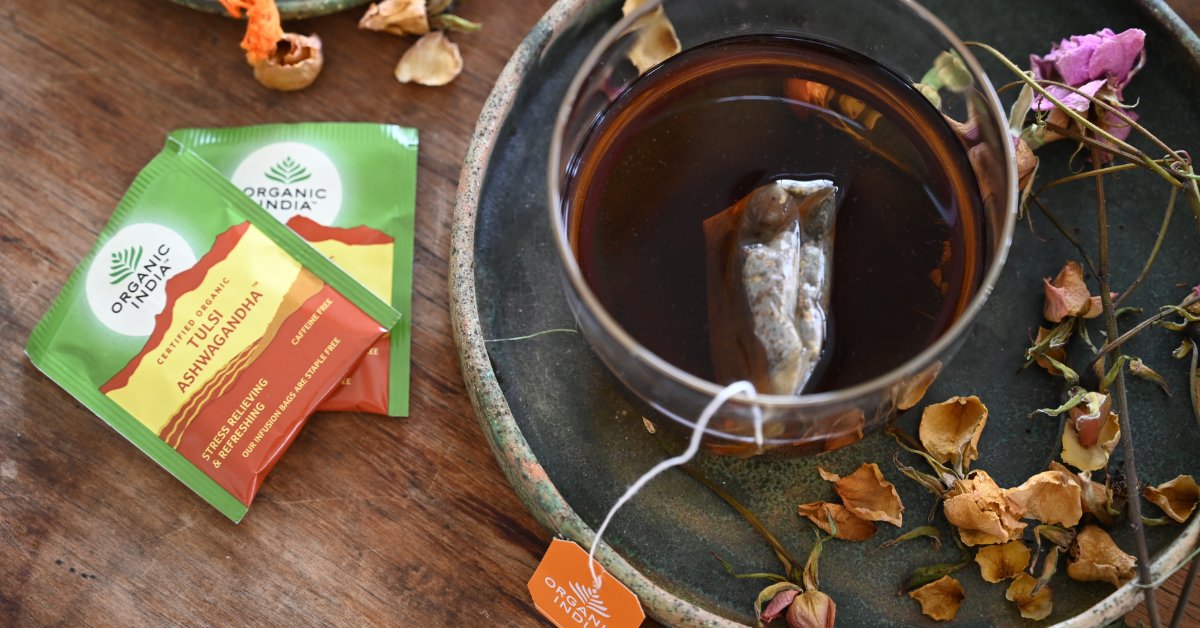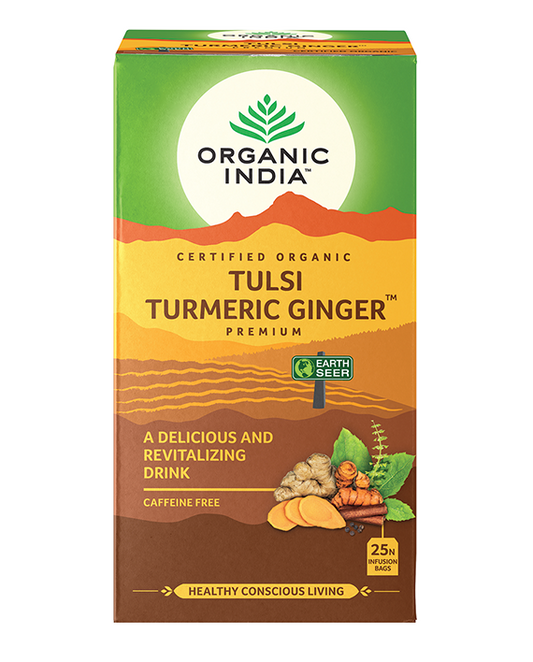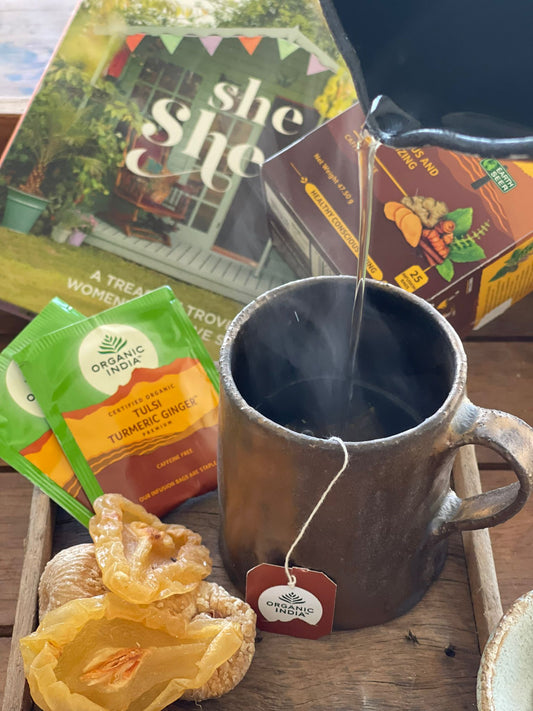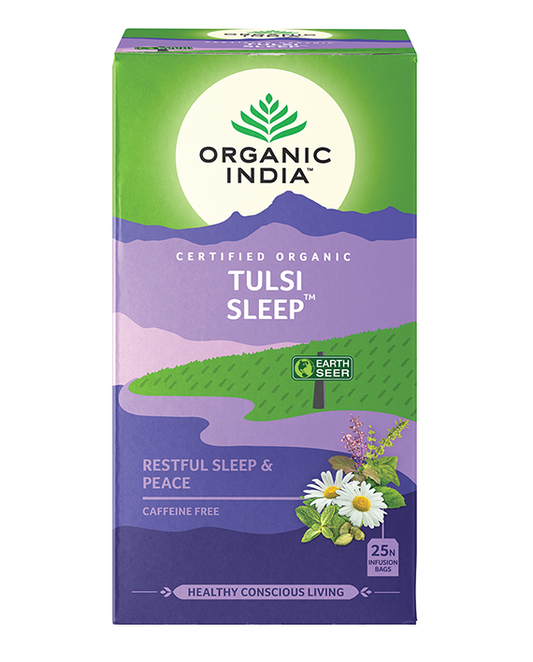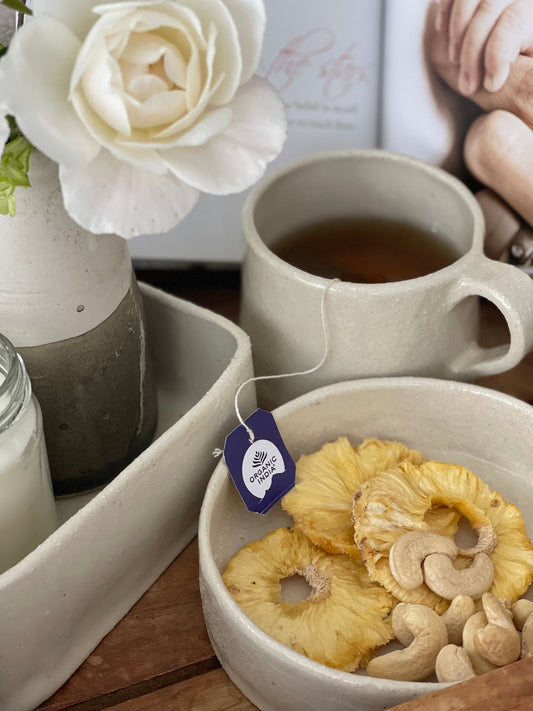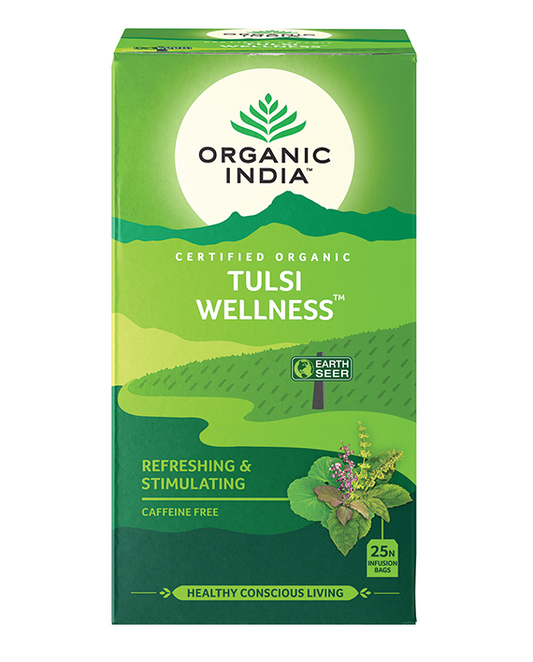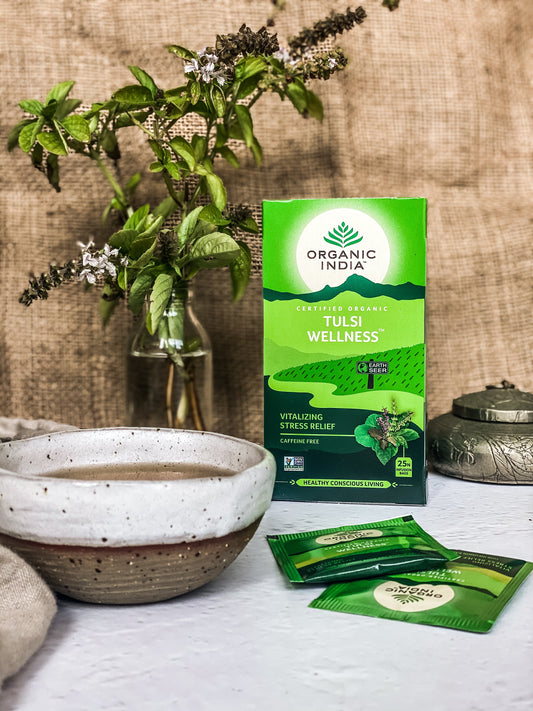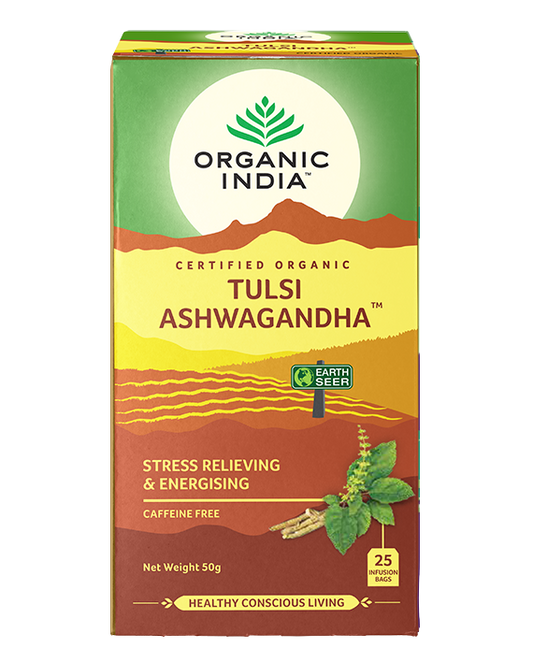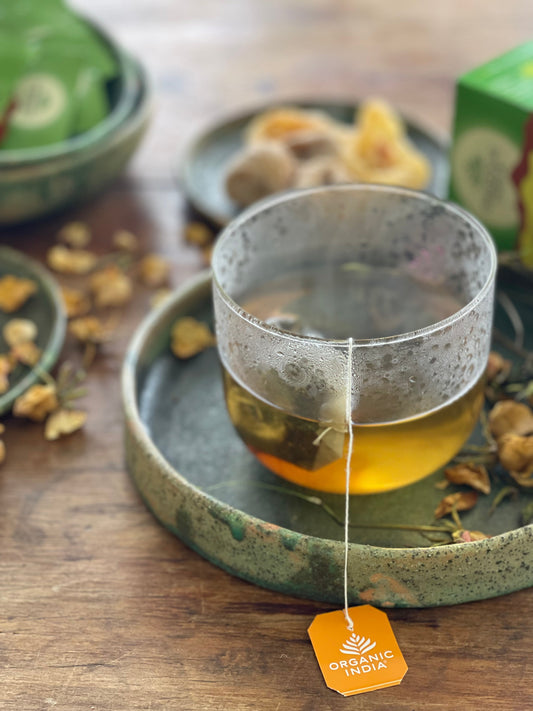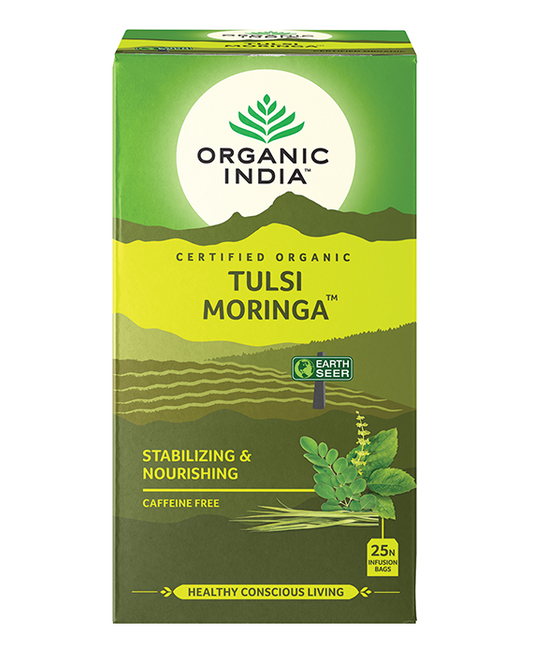Adaptogens – What are they and why is everyone talking about them?
Ask anyone and they’ll probably agree that stress is a part of life. These days it is such a huge contributing factor to so many chronic illnesses.
Increasingly, people are looking for ways to manage stress. Regular exercise, adequate sleep, a healthy diet, and working to cut out unhealthy habits are all excellent ways to improve your quality of life by protecting your mind and body from the negative effects of stress. In addition to these lifestyle tips, organic herbs are a great way to enhance overall wellness.
There’s a kind of herb whose ACTUAL JOB is to protect you from stress!
Enter Adaptogens
As the name implies, adaptogens are herbs that help your body adapt! Adaptogenic herbs have been used in ancient healing systems for centuries and help to protect the body from all kinds of stress. Incorporating adaptogens into your daily routine is an easy way to combat the negative effects of stress while boosting immunity, promoting a calm mind, and nourishing your body with balanced energy.
Referred to as intelligent herbs, adaptogens are treasured for their ability to assist the body in countering physical, emotional, and environmental stressors, while promoting the body’s natural state of balance.
Imagine you move to a new city, are traveling solo, or start a new class. After trekking the feat alone, you may feel nervous or run down after some time. Then, you run into an old friend unexpectedly and they provide a sense of groundedness, home, and strength within you. Think of adaptogens as this familiar feeling friend, calling you home to yourself.
Here are four Adaptogens we can’t live without!
1. Ashwagandha – “The rooted power of a horse.”
Name:
- Ayurvedic Name: Ashwagandha
- Latin Name: Withania somnifera
- Common Name: Winter Cherry
- Also known as: Indian Ginseng
Tradition:
- Ashwagandha is highly valued in the Vedic tradition as a rasayana, or tonic, that promotes longevity and vitality.
- Ashwagandha churna, or powder, is traditionally combined with boiled milk and honey to provide a nourishing tonic.
- Ashwagandha’s actions parallel those of the Ginseng used in Chinese medicine.
- Ashwagandha from ORGANIC INDIA is an excellent alternative to the now over harvested Ginseng, as it grows quickly and we cultivate our Ashwagandha using regenerative farming practices that heal the Earth.
Why you need it:
Ashwaganda is a powerful Ayurvedic herb that has been used for centuries to promote energy, endurance, and vitality. As an adaptogen, Ashwagandha revitalises and ignites the body’s natural stress response and supports immune health. This herb offers powerful nutritional support to rejuvenate both mind and body while combating the negative effects of stress and supporting proper functioning of the adrenals. Ashwagandha promotes healthy brain function and normalises energy, mood, and sleep. Our Ashwagandha is organically grown in the Bundelkhand region of India and processed in its pure, vital form.
2. Holy Basil – Tulsi “The queen of herbs”
Name:
- Ayurvedic Name: Tulsi
- Latin Name: Ocimum sanctum
- Common Name: Holy Basil, Tulsi
Tradition:
- Tulasi, this herb’s traditional Ayurvedic name, can be broken into “Tula,” which means balance, and “Si,” which means horizontal line.
- Holy Basil (Tulsi) is traditionally considered a feminine essence, symbolised by the goddess Lakshmi who could adapt to anything, just as tulsi does for the body. In the Hindu tradition, Tulsi is considered to be an earthly representation of Lakshmi who is the goddess of wealth, beauty, and prosperity.
- Holy Basil (Tulsi) is an ancient Ayurvedic remedy that is celebrated in the earliest Ayurvedic texts. In India, Tulsi has a purifying presence and is traditionally grown in an earthenware pot in every family home or garden. Tulsi is honored in various ceremonies and Tulsi stems are crafted into mala beads, traditionally used to assist in meditation and prayer. Mala beads made from Tulsi are said to confer protection, good luck, and fortune upon the wearer.
- In Ayurveda, Tulsi promotes purity and lightness in the body.
Why you need it:
Holy Basil supports many systems of the body including:
- Immune
- Digestive
- Respiratory
Holy Basil does not contain caffeine but can be naturally energising:
- Helps increase stamina
- Helps increase endurance
- Not stimulating
Holy Basil is the ultimate stress-protector:
- Uplifts mood
- Helps soothe the nervous system
- Intuitively gives the body what it needs to be balanced
- We use 100% organic Tulsi leaves and blossoms in our unique formula to bring you this extraordinary herb in its purest form. We use the same organic blend as the base in all of our infusions.
3. Amla – “The caretaker”
Name:
- Ayurvedic Name: Amalaki
- Latin Name: Phyllanthus emblica
- Common Name: Amla
Tradition:
- India’s traditional super-fruit
- Used for thousands of years as one of the most important herbs in Ayurvedic medicine
- Amalaki translates to “that which makes you pure, clean, and shining” – a testament to the purifying and rejuvenating properties of this herb
- Used in Ayurvedic medicine as a rejuvenating tonic for overall health
- One of the very few five-taste herbs in the world, Amla contains five (all except salty) out of the six tastes, or rasas, described by Ayurveda: sweet, salty, sour, pungent, bitter, and astringent. It is believed by including all six tastes into your daily diet, you can ensure your body is receiving a healthy balance of nutrients.
Why you need it:
Amla acts as caretaker to the body, supporting immunity while rejuvenating and strengthening. It contains a natural source of vitamin C and helps to promote a healthy immune system, hello antioxidants! ORGANIC INDIA partners with and empowers indigenous tribal farmers in India to responsibly wildcraft Amalaki, which allows for a cycle of wellbeing and respect between our herbs, the communities we work with, and the Earth.
4. Gotu Kola – “The herbal hug”
Name:
- Ayurvedic Name: Brahmi
- Latin Name: Centella asiatica
- Common Name: Gotu Kola
Tradition:
- In many cultures, Gotu Kola is called Brahmi – which means Divine – the word Brahmi also refers to Saraswati, the goddess of knowledge, music, arts, wisdom, learning and speech.
- Herbs leaves are shaped like a brain, suggesting brain support.
- Praised in ancient Ayurvedic texts for promoting rejuvenation through nervous system health, strength of mind, and vital energy.
- Considered a sattvic herb; it enhances spiritual connection and awareness, making it a prized aid for students and yogis.
- Has a bitter rasa, or taste; Ayurveda suggests bitter tastes support detoxification.
- Gotu Kola is known as a medhya rasayana, meaning it is amongst the Vedic tradition’s most commonly used adaptogens for nourishing cognitive function.
Why you need it:
Gotu Kola is known for its adaptogenic properties, especially when it comes to brain and nervous system support. This treasured herb promotes cognition, mental clarity, and focus. Gotu Kola supports a calm, balanced mind, promoting peaceful sleep and memory function.
Our organic Tulsi Teas and herbal supplements are ethically grown and wildcrafted by small family farmers in India, using regenerative agriculture practices. By choosing ORGANIC INDIA, you are investing in your health, small family farmers, environmental regeneration, and a heart-centered company set to prove that business and values can peacefully coexist.
